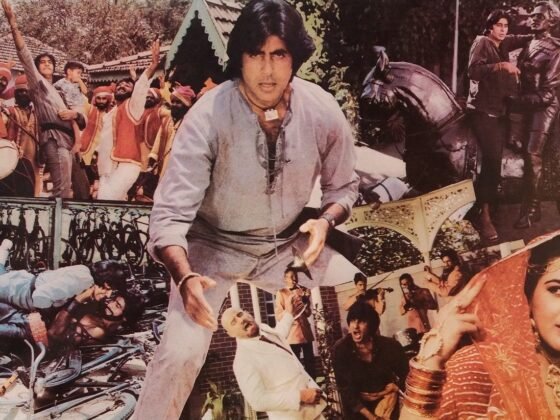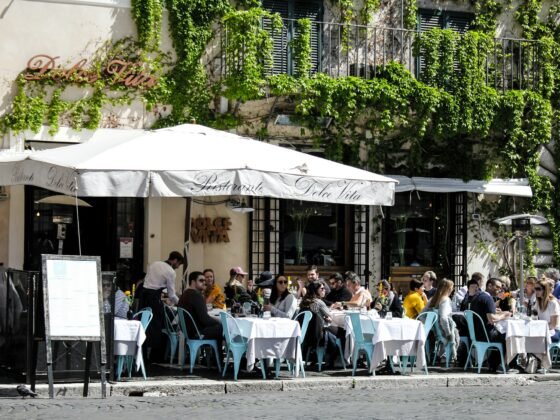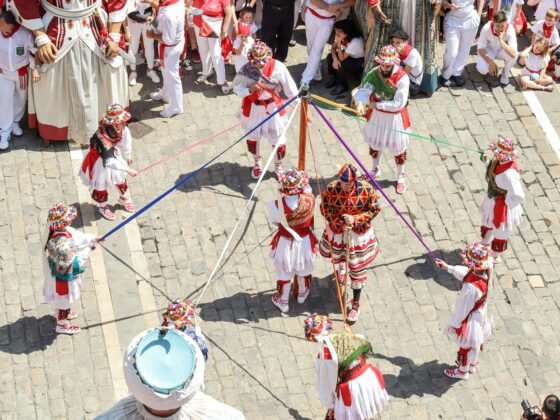The sun sets quickly in Kenya, like a weary child nodding once, twice, before surrendering to the night. On the Masai plains, where the world seems both older and somehow more wild, darkness comes like a thief. It is wise not to be caught out when it arrives.
Gathered around the fire, chattering happily amongst ourselves, we barely noticed the golden orange flames glowing ever brighter, and our shadows creeping across the dirt as the sky turned from powder blue to apricot, amber, navy and then an inky black studded with stars.
I did notice the cold though, that particular equatorial chill that sneaks up on you across the whispering grass once the sun has set, and slips an icy arm around your sunburnt shoulders. I pulled my blanket tighter around me, relishing the feel of its rough weave, the way the blue and red check mirrored that of the young warriors who wore them as clothing in these, the winter months.
We had been in Kenya for four weeks – four long, punishing, exhilarating, satisfying weeks in which we’d slogged and sweated, working our sluggish office-bound bodies, feeling our muscles strengthen, watching our skin turn pink and then golden.
Every article of clothing I’d placed so carefully into my rucksack in England was now impregnated with dust – cement dust, stone dust, plaster dust, and the red African dust that saturates the air and sucks the moisture from your face. My body ached, as much from sleeping on a thin canvas cot as from the digging and the lifting and the building.
But I was content. The project was finished now; the whitewashed school house stood out proudly against the ragged hillside like a young bride. The next morning the dusty yard would be alive with the sound of children shouting and laughing, hungry for a chance to learn. They wouldn’t understand the heel-dragging of Western youths; these kids didn’t need coaxing to their lessons. I ran a thumb over a callus on my left palm and smiled.
Our job was done and it was time to celebrate. The Chief had invited us to a feast at his manyata, a mile or so away from where we’d pitched our own tents. A cluster of mud huts, protected by a perimeter fence of acacia thorns more lethal than any barbed wire, housed his three wives, several dozen goats, and a television set. It was hard to know which he prized most.
The goats were missing a number tonight, a sacrifice to celebration. Freshly slaughtered, served rare; we had eaten with blood dripping through our fingers, sitting cross-legged at a roughly hewn, low wooden table that seemed to grow from the earth. Armfuls of large brown-green leaves formed a tablecloth prettier than anything a seamstress might have made.
Now the food and the table had been cleared and we sipped from clay cups filled with hot, sweet home-brew – honey wine flavoured with herbs. The intoxicating steam tickled my nose and I sneezed, the sound disturbing the dog that was sleeping at my side. I stroked his head, relishing the warmth of his body against my thigh.
At the far side of the campfire, someone began to sing. And as the a rich, deep voice filled the air with exotic words, time stopped, and I knew something that was as close to pure bliss as I have ever come.
The sun doesn’t set so fast in England, and you rarely see such a vivid painting across the canvas of the sky. But as I tuck myself up beneath that red and blue blanket in my Bristol apartment, if I close my eyes and block out the noises of the city outside my window, I can still hear the singing. I can still taste the wine.
R Simpson










